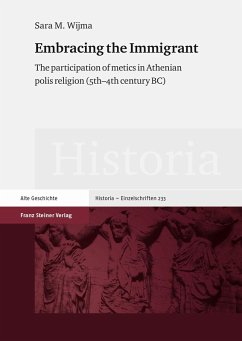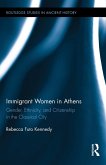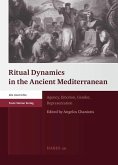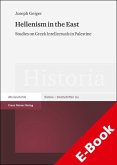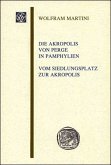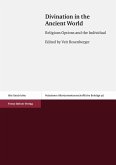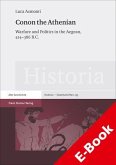What does it mean to belong to a community? How is membership conceptualised and in what way is the position of newcomers negotiated and the community's cohesion secured? Although no clear definition of citizenship survives from classical Athens, many sources include the statement that belonging to the polis consisted of participation in public life, often specified as sharing in the ritual obligations of the Athenians. Contrary to the still prevalent understanding of the Athenian polis as a city-state run by politically privileged men, this e-book explores this notion of the polis as a cultic and participatory community. In that context it reconsiders the position of immigrants in Athens, who are commonly viewed as outsiders or even anti-citizens in modern research. It is argued that as immigrants were gradually included in Athenian polis religion as metics, they should, at least to a degree, be considered members of the polis. In order to arrive at a better understanding of the ways in which the demos conceptualised this separate membership for immigrants, this e-book investigates the participation of metics in several polis and deme rites.
Sara M. Wijma
- MA History at the University of Groningen, the Netherlands (1996-2002)
- MPhil Ancient History at Cambridge University, UK (2002-2003)
- PhD Ancient History at Utrecht University, the Netherlands (2004-2009)
- Assistant Professor in Ancient History at the University of Groningen, the Netherlands (since 2010)
Interests and research specialities:
- general: political culture of the classical Athenian polis; social aspects of Athenian polis religion; epigraphy; memory studies
- specific: cultic definition of status and cultic expression of group identity in classical Athens; memory of the Persian Wars in 5th and 4th-century Athens
Sara M. Wijma
- MA History at the University of Groningen, the Netherlands (1996-2002)
- MPhil Ancient History at Cambridge University, UK (2002-2003)
- PhD Ancient History at Utrecht University, the Netherlands (2004-2009)
- Assistant Professor in Ancient History at the University of Groningen, the Netherlands (since 2010)
Interests and research specialities:
- general: political culture of the classical Athenian polis; social aspects of Athenian polis religion; epigraphy; memory studies
- specific: cultic definition of status and cultic expression of group identity in classical Athens; memory of the Persian Wars in 5th and 4th-century Athens
Dieser Download kann aus rechtlichen Gründen nur mit Rechnungsadresse in A, B, BG, CY, CZ, D, DK, EW, E, FIN, F, GR, HR, H, IRL, I, LT, L, LR, M, NL, PL, P, R, S, SLO, SK ausgeliefert werden.

